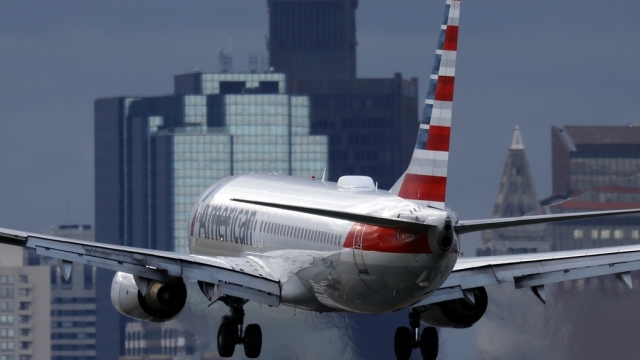More people are expected to fly this summer than in 2019, the year before the pandemic disrupted air travel across the U.S., according to the Transportation Security Administration.
The downside of increased air traffic is more delays.
According to the Bureau of Transportation Statistics, in 2021, around 10.88% of flights were delayed. In 2022, 19.97% of flights didn't leave on time. So far in 2023, 21.6% of flights have been delayed.
And if you ask some in Congress, the issue may get worse.
A combination of a lack of airport staff, aging airport infrastructure, a changing climate creating stronger storms, and a bunch of pilots being forced to retire in the coming years because of federal laws are leading to concerns.
"We have to go get this right," said Rep. Garret Graves, R-Louisiana. "Because, quite frankly, if we don't, the disruptions that we have seen over the last few years, quite frankly, aren't going to be anything."
SEE MORE: Report outlines challenges flagging pilots' mental health conditions
This summer, Congress must consider the FAA Reauthorization Act, a five-year piece of legislation. Congress must pass it by September 30 because it impacts everything from billions of dollars in funding to keep airports running smoothly to rules that govern the age of pilots.
One issue being discussed is the age of mandatory retirement for pilots. Currently, pilots must retire at 65. Some in Congress want that to change to 67. Within 15 years, 50% of pilots will retire.
Faye Malarkey Black, CEO of the Regional Airline Association, said an even greater air crisis is coming. Fewer pilots means more delays. Raising the age would limit disruptions and protect routes to smaller, more rural airports.
"We ask Congress to let experienced pilots fly," Black said.
Jason Ambrosi, who leads the Air Line Pilots Association, said the international standard for pilot retirement is 65 for a reason. Raising it would raise safety questions and mean those pilots couldn't fly internationally, which is typically what his most experienced pilots want.
"Putting a poison pill in there is something that we are just not going to stand for," he said.
The debate over pilot retirement age will only intensify this summer.
While the House of Representatives is advancing its version of the FAA Reauthorization Act this week, the Senate will pass its version later this summer.
Other big flying debates are expected too, like whether planes should be able to fly over sports stadiums during events. They haven't been able to since Sept. 11, 2001. The bill will also consider refund rules airlines must follow. The bill could also consider the size of airline seats.
Trending stories at Scrippsnews.com




